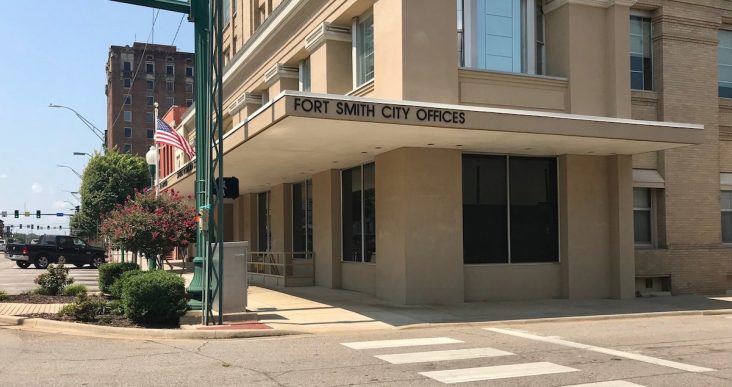Fort Smith to provide payment kiosks for bill payment
by September 15, 2020 7:47 pm 2,557 views

The Fort Smith Board of Directors approved two resolutions at Tuesday (Sept. 15) night’s regular meeting to give residents more convenient options to pay their water and sewer bills.
One resolution allows the city to use capital improvement funds for technology, security and set up for a drive-thru location for utility payments. The other allows the mayor to execute a contract with U.S. Payments, LLC so residents can make utility payments at kiosks located throughout the city.
According to a memo by Utility Director Lance McAvoy, more than 50% of consumers prefer the convenience and immediacy of traditional and in-person bill payments. Some of those do so because they have limited access to technology, credit cards, and debit cards, which make online bill payments impossible.
“Payment kiosks allow customers to make bill payments at times that are convenient for them. Self-service payment kiosks are a useful tool in offering a broad range of options to customers, no matter how they prefer to pay. The use of payment kiosks are to continue our effort in providing multiple options within customer service and to provide safe options to pay utility bills,” McAvoy said.
U.S. Payments has 10 payment kiosk locations in the city that provide bill payment options for OG&E, Arkansas Oklahoma Gas, Arkansas Valley Electric and COX. The service contract includes kiosk payment options using cash, check, or debit/credit card. There is no cost to the city for the service. Customers will be charged a minimal convenient fee.
The city estimates the kiosks to be ready to be used for city utility payments by the first of the year, said Shari Cooper, public relations and communications manager for the City of Fort Smith.
On July 7, the board approved the lease for a temporary drive-thru facility behind the Area Agency on Aging building at 524 Garrison Ave. for utility bill payment collection to provide social distancing between city staff and customers during the COVID-19 pandemic. Doing that required upgrades by the city to the computer, communication, security and tube systems.
That project will cost less than $76,000. Directors approved using city capital improvement funds for that project. Because the temporary lease is a direct response to the COVID-19 health protocols, the city will seek reimbursement from FEMA and/or the CARES Act for all costs associated with the facility including lease, upgrades, and operating expenses, McAvoy said.
Cooper said the city expects the drive-thru facility to be operational by the first part of November.
